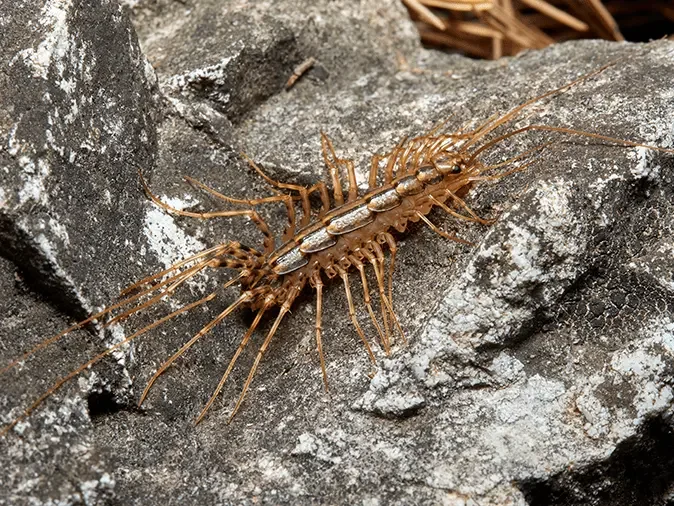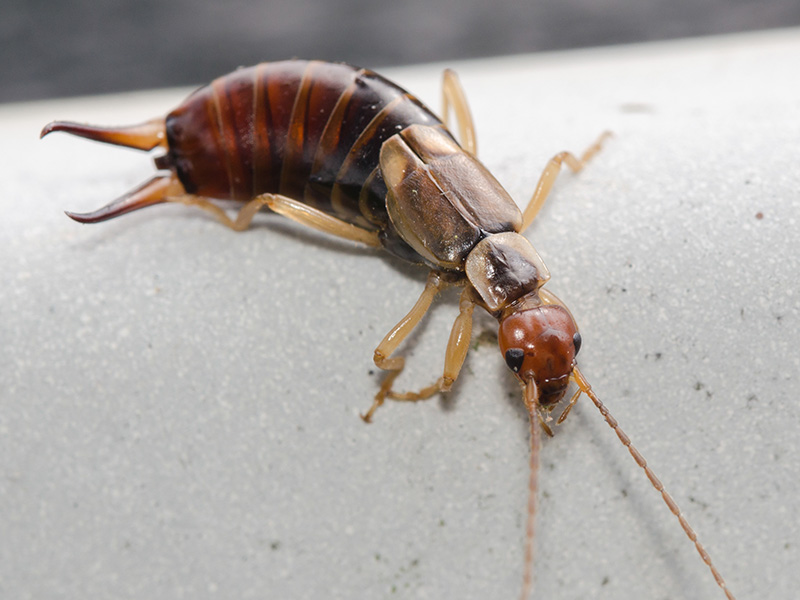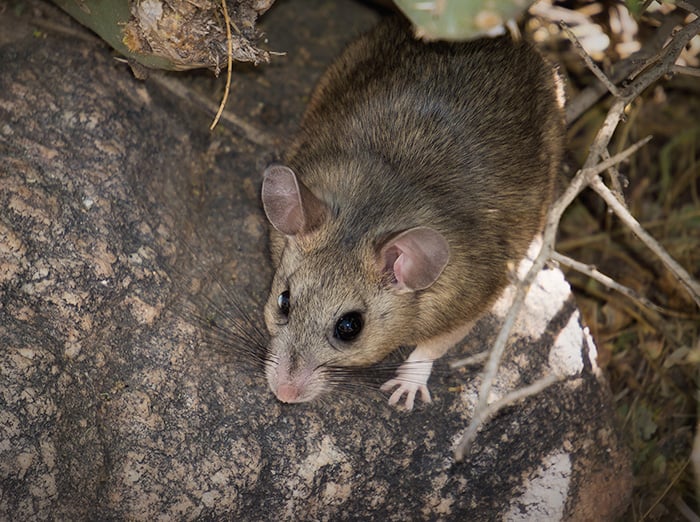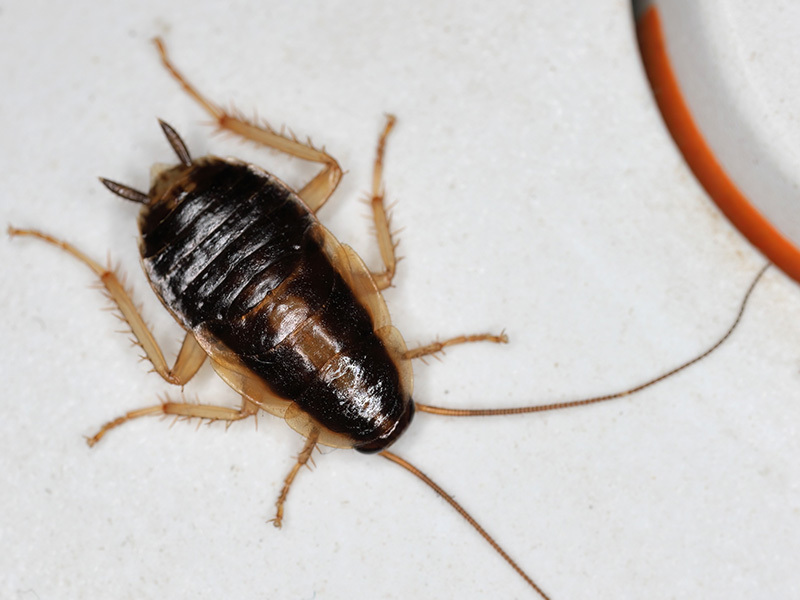
What Do House Centipedes Look Like?
House centipedes have long, flattened and segmented bodies with one pair of legs per segment attached to the sides of their body. Significantly smaller than giant centipedes, they grow up to 1 plus inches in length, have 15 pairs of long, thin legs with dark and white bands, are brown to grayish-yellow, have three longitudinal dark stripes on top, well-developed eyes, and poison jaws connected to poison glands used to kill insects.
When are house centipedes most active?
Life Cycle of House Centipedes
Gradual metamorphosis
House centipedes lay an average of 60 eggs in the spring or early summer. The larva hatch with four pairs of legs and will complete 5 instars increasing the number of leg pairs they have each time 5,7,9,11, and 13 pairs. They will complete four instars after the larva stage before becoming adults.
Habits of House Centipedes
- Diet: Feed on small insects, larvae, and spiders
- Activity: Nocturnal
- Preferred Climate: Damp, temperate environments
- Defense: Venom and speed
- Cautions: Considered harmless to people but will possibly bite. Venom could cause pain similar to a bee sting. Allergic reaction is possible.
- Home Invasion: Will live indoors or outdoors. Inside they will inhabit areas in a home they can find moisture: bathrooms, cellars, stacks of firewood, etc.
Are House Centipedes Dangerous?
House centipedes are considered nuisance pests but are capable of biting. Their venom can cause pain, inflammation, and even allergic reactions in some individuals.
Where Do House Centipedes Nest?
House centipedes are often found around the foundations of houses and other buildings. Inside, they are often found in damp areas such as bathrooms.
Helpful Hints for House Centipedes
In order to prevent a house centipede infestation, we recommend implementing the following prevention tips:
- Eliminate moisture in or near the home
- Seal entry points
- Make sure screens are covering openings
- Clean possible food sources
- Hire a pest control pro
Interesting Facts About House Centipedes
House centipedes wrap the last pair of their legs around their prey.
How Do You Get Rid of House Centipedes?
Although house centipedes are not a threat to people or property, there presence in Southern Arizona homes is not welcome. At Northwest Exterminating, we offer home pest control services that eliminate these pests!

Testimonials
Request Your FREE Estimate
Have questions or need help getting rid of house centipedes or other pests? Simply complete the form below or give us a call!



